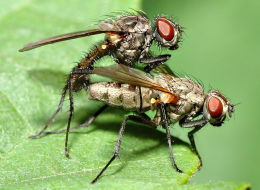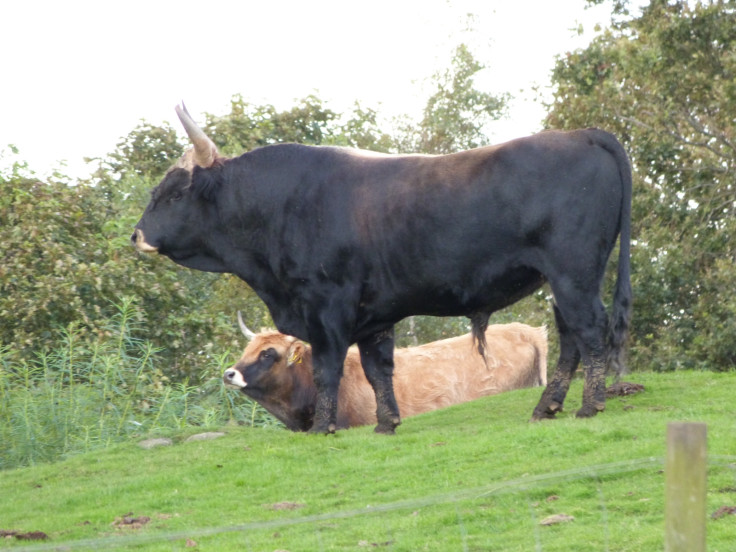In this scientific study, the authors examined how the weather—or, more specifically, atmospheric pressure changes – affects the
sexual behavior of insect species, specifically the curcurbit beetle, the armyworm moth, and the potato aphid. They found that any change in the atmospheric pressure caused the bugs to be less frisky, likely to protect themselves in situations involving high winds and heavy rains.
 |
Potato aphids were less interested in mating
when pressure changes heralded a storm. |
When they measured the male beetles’ response to female sex pheromones under the different conditions, they found a significant decrease in pheromone response when air pressure fell compared to stable or increasing pressure.
Furthermore, 63 percent of males started copulating faster in the presence of females during dropping atmospheric pressure, a condition associated with high rains and winds. By contrast, under stable or rising air pressure conditions, all males showed full courtship behavior.
Additionally, the amount that female armyworm moths and potato aphids showed mate-attracting behavior was also measured under the three atmospheric conditions.
The female armyworms’ calling was reduced during decreasing air pressure, but the potato aphid showed reduced calling during both decreasing and increasing air pressure, two conditions that can occur with high winds. In both cases, reduced calling went hand-in-hand with reduced mating behavior.
 |
| Generic bug sex picture |
“The results presented show that three very different insect species all modify aspects of their sexual behavior in response to changing barometric pressure,” explained co-author Dr José Maurício Simões Bento from the University of São Paulo.





